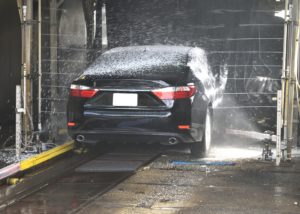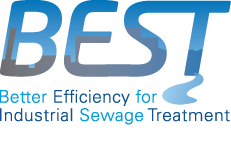Out and about with the environmental inspector

The city’s environmental inspector is putting shoes on. According to the control programme, today’s agenda includes the periodic inspection of a garage that also operates a car wash. Regular official inspections of the garage ensure compliance with the environmental regulations. Usually, visits like this are cordial enough. A new business owner can also be provided with guidance regarding the correct practices during the first control visit.
Control is based on the Environmental Protection Act and the Waste Act as well as the decrees and statutes specifying them, such as municipal environmental protection and waste management regulations. As an example, garages and car washes must ensure the appropriate disposal of hazardous waste generated in vehicle repair and maintenance operations and organise other waste disposal. The operations of businesses should never result in environmental contamination. Inspections may be conducted to remedy previously identified irregularities or on the basis of complaints or reports from the public. Even if there are no specific grounds for it, the environmental protection authority will periodically check all businesses whose operations generate hazardous waste.
This is precisely why our environmental inspector is now taking a look at the room where the oil separator of the cleaning water used in the car wash is located. Oil residue should not be allowed to enter the drain! The oil separator is a new model with sensors that will give an alert if the oil space is full. The company must then call a waste disposal company to dispose of the waste oil in the correct manner. The inspector will also visually inspect the sand separator well and ask how often the well is emptied. The business owner explains that a lorry with suction equipment regularly transports the sand away. It is perfectly fine for the company to empty the well itself as long as the accumulated sand is correctly disposed of. But it’s much easier for the business owner if the well is emptied by professionals.
By the wall, our inspector notices a barrel of detergent and points out that hazardous chemicals, such as detergent concentrate, should not be stored in a space where the substance may end up in the drain if the container falls over. The business owner apologises, explaining that the barrel has just been brought in and that they haven’t had time to move it to the chemical storage yet, and shows the storage to the inspector. Even though the storage room is dimly lit, it is obvious that there is no floor drain, so there is no risk of the detergent ending up in the drain if the container falls over. A sack of absorbing agent has also been placed next to the wall in case of accidents. The inspector observes that accidents would be even easier to manage if the containers were kept in a basin, making it easy to collect the detergent. And it goes without saying that spilled detergent should not be poured down the drain!
To round things off, the environmental inspector makes sure that the car shampoos stored in the storage room are such that they do not impair the operation of the oil separator when used together. The manufacturer or importer should test the compatibility of chemicals but, to be safe, the inspector writes down the names to double check them later. There are dozens of different washing chemical combinations, so even the most experienced of inspectors can’t remember every possible substance and reaction.

The insides of the garage look neat and tidy. An inspection of the floor drains reveals that all of them have shut-off valves to stop substances from entering the drain, if necessary. Just the way it should be! This building is fairly new, so safety and environmental factors have been taken into consideration at a satisfactory level. In older buildings, normal drains can be closed, for example, using tight lids, preventing oil, brake fluids and other hazardous substances from entering the drain. But how about waste oil? Where does it go? The garage owner shows the container in which waste oil is stored. Modern and appropriate, the container is emptied when required by a waste management company that disposes of the oil correctly.
The inspector thanks the business owner and promises to return when it’s time for the next inspection. At our office, the inspector swaps shoes for sandals, gets a cup of coffee and writes the inspection report on the computer. Everything’s fine and dandy, nothing to complain!



